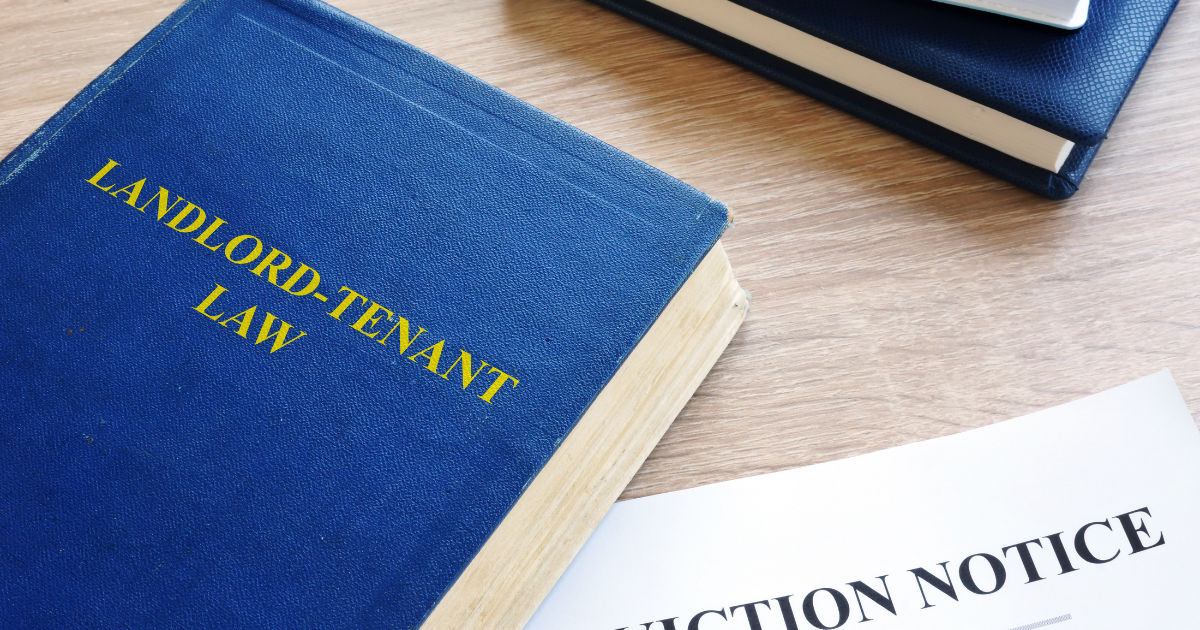Lost Promissory Note Focus Of Superior Court’s Decision In ‘Rao’
Lawence J. Rao Jr. is the owner of record of a property located in Philadelphia. In 2006, Rao entered into a loan transaction with SunTrust Mortgage,...
3 min read
Alan Nochumson : Aug 16, 2019 9:00:00 AM

In Philadelphia, the Philadelphia Municipal Court and the Philadelphia Court of Common Pleas have concurrent jurisdiction to handle landlord-tenant disputes. While the Municipal Court is technically Philadelphia’s small claims court, for purposes of landlord-tenant disputes, it is a court of unlimited jurisdiction. In other words, the Municipal Court can handle a dispute of any monetary amount between the parties.
Given that a dispositive hearing may be scheduled for an eviction action within a month of the filing of the complaint, most landlords initiate eviction actions in the Municipal Court as compared to the Court of Common Pleas.
Furthermore, while a judgment for possession in an eviction action initiated in the Municipal Court may be appealed to the Court of Common Pleas on a de novo basis, if the tenant wishes to stay the execution of the judgment for possession while the appeal before the Common Pleas Court is pending, the tenant is required under court rules to escrow, without objection, the rent due under the lease arrangement with the prothonotary. As such, if the landlord is ultimately successful at the Court of Common Pleas-level, the landlord will have a proverbial “pot of gold” at the landlord’s disposal to satisfy the money owed to the landlord by the tenant in connection with the underlying eviction action.
Another reason to file an eviction action in Municipal Court is that the case management deadlines for an appeal at the Court of Common Pleas-level are more expedient and streamlined.
In contrast, if no landlord-tenant relationship exists between the parties, then the property owner must initiate an ejectment action in the Court of Common Pleas. Unlike an eviction action, there is no mandatory escrow requirement and the case management for an ejectment action is not as expedient and streamlined as an eviction action.
In Rittenhouse 1603 v. Barbera, 2019 Pa. Super. Unpub. LEXIS 1546 (June 24, 2019), the Pennsylvania Superior Court recently addressed whether the Municipal Court and Court of Common Pleas had subject matter jurisdiction as to the eviction action commenced by the property owner against the occupant of the residential property.
In Barbera, Eugene Barbera owned a condominium unit in a building situated adjacent to Rittenhouse Square in Philadelphia. When Barbera defaulted upon the mortgage loan encumbering the condominium unit, he lost the condominium unit to the lender in foreclosure proceedings.
After that happened, Barbera and Lewis Katz created Rittenhouse 1603, LLC, which purchased the unit. Under the operating agreement, Katz was managing member and Barbera contributed a Class B unit, later assigned to Katz. Rittenhouse 1603 then entered into an occupancy agreement with Barbera, granting him use of the unit (without rent) in exchange for utilities, taxes, assessments and insurance.
When Katz died, his son became managing member, and Barbera ceased payments. Rittenhouse 1603 terminated the occupancy agreement, served notice to vacate, and filed for eviction in Municipal Court, obtaining possession. Barbera appealed to Common Pleas, where Rittenhouse 1603 added counts of ejectment and unjust enrichment, seeking possession and monetary relief. The trial court awarded possession plus fees and rent, totaling $142,624.38. Barbera appealed.
The Superior Court sua sponte addressed subject matter jurisdiction. Under 42 Pa. C.S. § 1123(a)(3), Municipal Court has jurisdiction over matters under the Landlord and Tenant Act of 1951, including termination or breach of lease or failure to pay rent. The Court held that the occupancy agreement qualified as a “lease” because it granted Barbera possession in exchange for consideration (payment of utilities, taxes, assessments, insurance), thereby validating Municipal Court jurisdiction over the eviction.
The Superior Court then confirmed that Philadelphia Local Rule *1001(f)(2)(ii) authorized de novo appeals to Common Pleas “in accordance … with the Rules of Civil Procedure that would be applicable if the action being appealed was initially commenced in the Court of Common Pleas.” Under Pa.R.C.P. 1020(a), the plaintiff may state multiple causes of action. Thus, Rittenhouse 1603 properly added ejectment and unjust enrichment counts on appeal.
This decision clarifies that occupancy agreements imposing non-rent obligations can trigger landlord-tenant jurisdiction in Municipal Court and that de novo appeals to Common Pleas may expand claims beyond mere eviction to include ejectment and monetary remedies.
Reprinted with permission from the August 16, 2019 edition of The Legal Intelligencer © 2019 ALM Media Properties, LLC. All rights reserved. Further duplication without permission is prohibited. For information, contact 877-257-3382, reprints@alm.com or visit www.almreprints.com.

Lawence J. Rao Jr. is the owner of record of a property located in Philadelphia. In 2006, Rao entered into a loan transaction with SunTrust Mortgage,...

Late last year, I wrote about a ruling recently handed down by Judge Nina W. Padilla of the Philadelphia Court of Common Pleas that allowed a...

As newly constructed housing is being built in places that once contained decrepit structures or barren lots, longstanding residents in these...